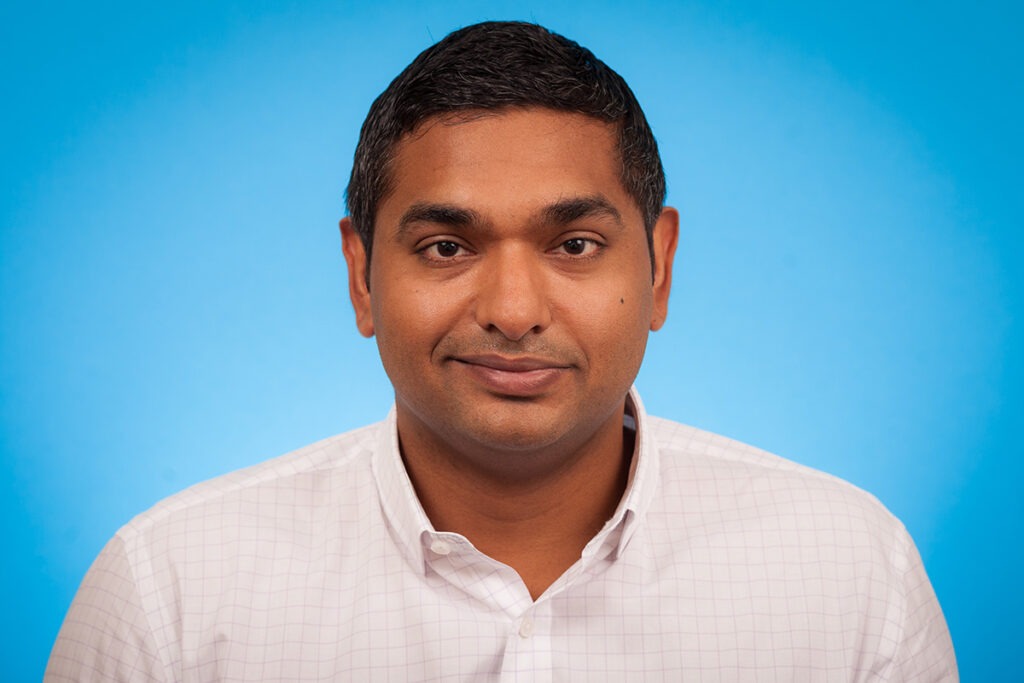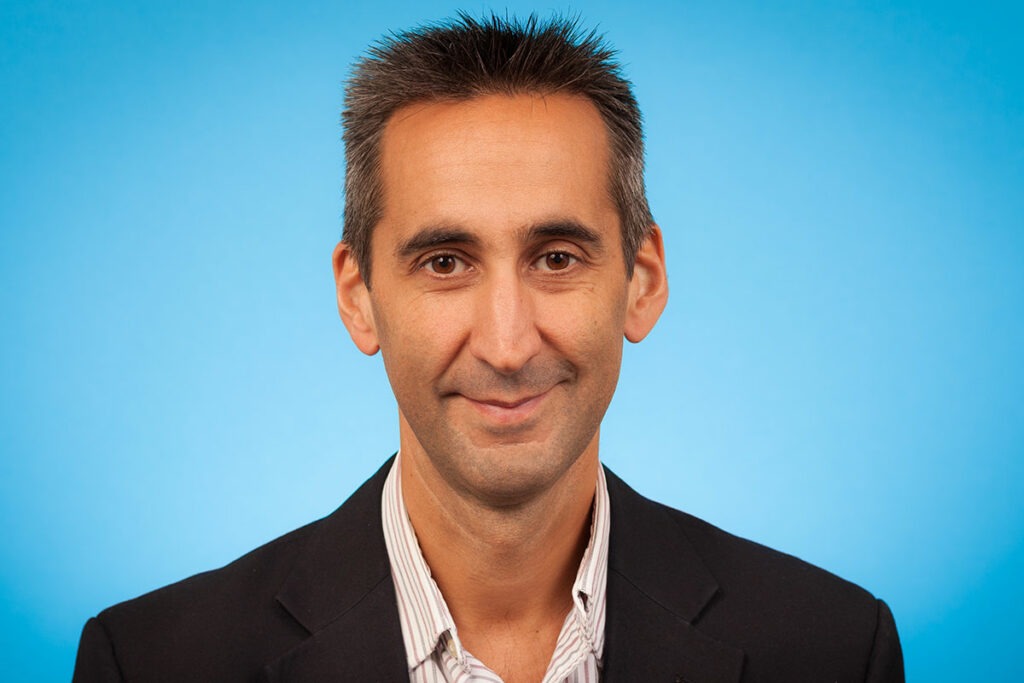St. Michael’s researchers receive close to $5 million in federal funding

Seven researchers at St. Michael’s Hospital have received over $4.8 million in research funding from the Canadian Institutes of Health Research (CIHR).
The federal agency released the funding as part of their spring Project Grant funding. The Project Grant program captures ideas with the greatest potential to advance health care, health systems and health outcomes.
The funded projects from St. Michael’s Hospital will dig into a variety of medical issues. From kidney disease treatments to the storage and distribution of COVID-19 medication and the electronic stimulation of facial muscles for depression treatment, St. Michael’s researchers have been selected for their exciting, creative, and crucial research. Read on to learn more about the research that St. Michael’s researchers will be taking on this fall.
Improving health outcomes for people with diabetes and kidney disease
People with diabetes are at increased risk of developing kidney disease. Usually, kidney disease develops over a long period. This is called chronic kidney disease.
However, kidney damage can sometimes happen very quickly, especially if someone is sick for another reason or if they have had a major operation. This is called acute kidney injury (AKI).
“We will study how AKI occurs in diabetes, and we’ll use this information to develop new treatments for people with diabetes at risk of a sudden worsening of kidney function,” says Dr. Andrew Advani, an endocrinologist and scientist at the Keenan Research Centre for Biomedical Science at St. Michael’s Hospital.
There are management strategies to prevent the development of chronic kidney disease in diabetes, like lowering blood sugar and pressure. The treatment for AKI is more limited.
“By targeting moments in a person’s life where they may develop a sudden worsening of kidney function, we could improve kidney outcomes for people with diabetes in a way that is very different to another type of treatment for chronic kidney disease,” says Dr. Advani.
With this funding, Dr. Advani and his team will be able to work on studies using cells grown in Petri dishes, experimental models and human kidney samples and human urine.
Treating depression with electric stimulation of facial muscles
Although depression is common, currently available treatments are difficult to access, have low adherence, and are associated with adverse effects. Many are also hospital-based, and there is a great need for new treatments with the potential for home-based use.

Dr. Venkat Bhat is the director of the Interventional Psychiatry Program, a staff psychiatrist at St. Michael’s, and a scientist at the Li Ka Shing Knowledge Institute. Recent work from his team working along with researchers at UHN-KITE suggests depression could be treated by repetitive Functional Electrical Stimulation (FES) of the facial muscles responsible for producing a “genuine/Duchenne” smile pattern, the type of smile which makes someone’s eyes crinkle with joy.
FES is a technique where muscles are electrically stimulated in a patterned manner, causing them to contract. It has demonstrated benefits for individuals with neurological injuries to retrain various upper and lower limb functions.
“Working along with researchers at UHN-KITE, we will conduct the first sham-controlled pilot trial of FES of the facial muscles to treat depression at St. Michael’s,” says Dr. Bhat.
Pilot data from the proposed in-person study will also inform the development and conduct of studies examining underlying mechanisms of action of FES, and development of take-home FES devices for depression.
Investigating the marginalization of racialized and ethnic individuals in cancer genetics services
Cancer screening of high-risk populations for predisposition genes is critical for early detection, cancer prevention and genetic testing for at-risk relatives. Yet, there are racial and ethnic disparities at every stage of the genetics service pathway.
Individuals with diverse ethnic backgrounds and those who experience racialization are less likely to be referred for genetic tests, and are more likely to receive inconclusive genetic test results. Both can be barriers to appropriate screening for, and prevention of, cancer.

“We will explore experiences, needs, barriers and enablers to accessing cancer genetics services among racialized and ethnic patients and among health-care providers,” says Dr. Yvonne Bombard, a genomics health services scientist at the Li Ka Shing Knowledge Institute. “Then, we will characterize the nature and extent of racial and ethnic disparities in cancer genetics services, genetic diagnoses, and recommendations for risk-reducing management.”
“This funding enables us to advance equity in cancer genetics services in partnership with patients and community partners and providers, equity and health system leaders,” she says. “Evidence on which populations are experiencing disparities, and at which junctures in the care pathway disparities occur is a critical first step to address these disparities.”
With this project, Dr. Bombard also received the Maud Menten New Principal Investigator Prize in Genetics, securing additional funding for the study. The
prize is awarded annually to the top three early career investigators with the highest ranking projects that are relevant to the Institute of Genetics (IG) mandate.
Unlocking the relation between autism spectrum disorder and high blood sugar during pregnancy
Autism spectrum disorder may be partly preventable. Metabolic modification before or during pregnancy, such as weight reduction or sugar control, may be methods to achieve such prevention of autism spectrum disorder.

“The question we are trying to answer is whether women with slightly elevated blood sugars before pregnancy are at higher risk of having a child with autism spectrum than women with normal blood sugars,” says Dr. Joel G. Ray, a clinician-scientist at the Li Ka Shing Knowledge Institute. Dr. Ray and his team will also investigate whether that risk is amplified when a woman has a higher blood pressure or a higher body mass index.
“The funding is a true enabler,” he says. “We are optimistic that this is a great start to further research in autism prevention.”
Exploring how and why lifesaving COVID-19 drugs were allocated in Ontario throughout the previous waves of the COVID-19 pandemic
The COVID-19 pandemic resulted in an urgent need for effective therapeutics, many of which were in extremely short supply. With this, the province saw an unprecedented shortage of multiple lifesaving drugs.

Dr. Fahad Razak aims to describe the allocation of these COVID-19 medications in Ontario and characterize inequities in their allocation. As a General Internal Medicine physician and scientist at the Li Ka Shing Knowledge Institute, he will use these results to develop an ethical framework for when multiple medications for the same condition are in short supply, and evaluate this framework using advanced simulation modelling.
“The overarching goal of this research is to better understand how we can deliver effective and equitable hospital care in situations when key therapeutics are scarce and in high demand,” Dr. Razak says.
The study will provide information to support the ongoing management of the COVID-19 pandemic, as drug shortages are likely to persist while variant-driven surges continue.
“This funding will provide us the capacity to validate and standardize huge amounts of medication data that are pivotal to answering this question,” says Dr. Razak. “This funding will also allow us to engage in intensive knowledge translation activities of the ethical framework we develop to support efficient, effective, and equitable allocation of medications to COVID-19 inpatients in need.”
Increasing capacity to THRIVE and reducing repeat injury after violent injury
Twenty per cent of those who are injured by violence will be injured again within the next year. Hospital-based violence intervention programs (HVIP) offer an opportunity to use the time of reflection after a violent injury to increase capacity to thrive and prevent future violent injury.

Dr. Carolyn Snider is a scientist with the MAP Centre for Urban Health Solutions and Chief of Emergency Medicine at St. Michael’s. She and her team co-designed a HVIP called THRIVE. The project team includes people with lived experience, frontline youth workers, city stakeholders, research colleagues from across Toronto, and clinicians from St. Michael’s Hospital.
“A ‘coach’ with lived experiences will meet the survivor in the hospital to deliver support for around one year using a wraparound care model and coach the survivor to build personal capacity to thrive,” says Dr. Snider.
This study will be the first to evaluate the intervention components of a HVIP and link them to the key outcomes of built capacity to thrive and reduced violence. Increasing capacity to thrive while reducing injury will contribute to improved long term health and well-being.
The THRIVE program will launch this fall as a pilot program based on donations from foundation donors and the City of Toronto. The CIHR funding will enable Dr. Snider and her team to do a robust evaluation on it.
Examining the proposed solutions to the lethal Canadian opioid overdose crisis
Canada has the world’s most rapidly accelerating overdose crisis. The per capita opioid overdose mortality has increased by 117 per cent since 2016.
Toronto is the urban area with the highest level of income disparity in Canada. In 2020, 823 people died of an overdose in Toronto, more than twice as many as in any other jurisdiction in Canada, and higher than those recorded in major American cities.

In the Toronto Disparities, Overdose and Treatment (T-DOT) study, Dr. Dan Werb, a scientist at the MAP Centre for Urban Health Solutions, and his team want to understand whether rapid implementation of new treatments for opioid withdrawal and an impending drug decriminalization policy are effective in reducing overdose risk among people who are experiencing severe socioeconomic disparities and who inject drugs.
The study will combine self-reported data with administrative health records, which is important to confirm clinical outcomes. High-quality, comprehensive data is needed to chart an evidence-based pathway to end the opioid overdose crisis in Canada and across North America, particularly for people who inject drugs experiencing socioeconomic disparities.
By: Talar Baboudjian Stockton

